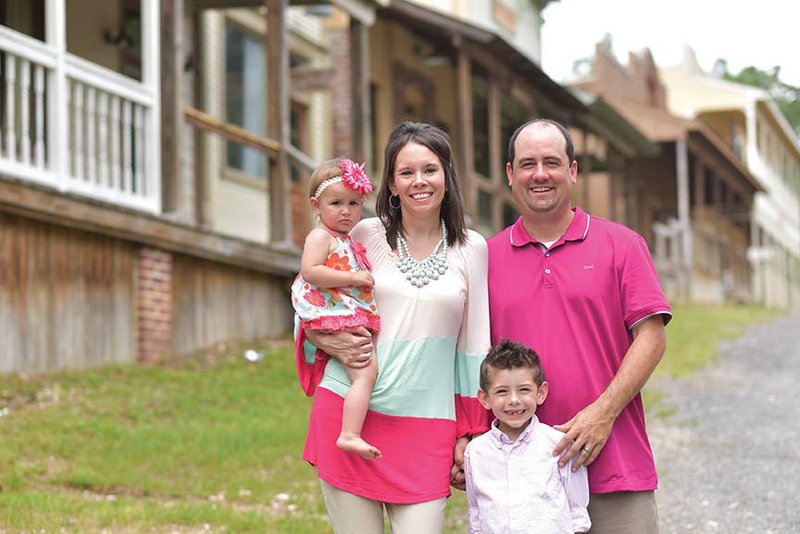Seeing such sights as cigarette burns on a baby was the norm for the Rev. Perry Black when he was a boy in northeast Arkansas. His parents were foster parents, and the family frequently had a full house, he said, noting that it wasn’t uncommon to wake up to more children in the house when his parents responded to a crisis call in the middle of the night.
Black is senior pastor of Family Church in Bryant.
“I was exposed at a very young age to hurt and abused children, and I knew early on I wanted to help care for them when I was older,” he said.
His upbringing, coupled with his Christian leadership, inspired Black to establish Second Chance Youth Ranch. The faith-based program is designed for youth in foster care in need of a safe and stable homelike environment. Situated on 300 acres in Paron, the ranch has four bunk houses, each with the capacity for seven youth and a set of house parents.
The children attend Bryant schools and receive therapeutic services to help them heal from their past traumas. They are taught life skills such as money management and learn the value in volunteerism.
Black started college at Arkansas State University in Jonesboro with intentions of becoming a social worker like so many of his mother’s friends, he said, but his plans changed in 1972 when he became a Christian.
“From that time on, all I ever really dreamed about was establishing a place for multiple foster homes on one parcel,” he said.
Black started Family Church in 1990 and purchased the land for the ranch when the church was about 10 years old, he said.
“It’s very remote and features an old mock Western town, with the goal of taking young people out of their current situation and back to a simpler time — something that resembles ‘Little House on the Prairie.’ We’re giving them a second chance.”
Billy and Rachel Hubbard, who live on-site as operations directors, shared the main rules of the ranch. Children have to be safe, make safe choices, and they have to be willing to work on their lives.
“Everything we have here was built for this purpose and symbolizes slowing down and gaining a fresh start,” Rachel said.
She added that the buildings are modern on the inside. For instance, the “bank” is actually the recreation center, and the “saloon” is a kitchen.
The Hubbards left their comfortable careers — Rachel was a teacher, and Billy was a real estate agent — for the ranch.
“We used to work for a paycheck, and now we work to change lives,” she said.
Black has known Rachel since she was 13.
“They do a tremendous job and share my vision. Their hearts are in it, and they are a godsend,” Black said.
The Hubbards have been at the ranch for about 10 years, arriving shortly after they married. They started as house parents and raised seven teenage girls. Black then asked them to be directors, and they have since become the biological parents of two children.
Black said there are about 5,000 foster children in Arkansas right now. Caseworkers determine the best placement for these children. Second Chance typically receives teenagers because that is the biggest need in the state, Rachel said.
“We become family to kids who don’t have that. We take them in, show them unconditional love and create experiences that have always been fairy tale to them, such as [going to] the beach and waking up on Christmas morning to open presents,” she said.
It’s natural to develop close bonds with the kids, Billy said. Watching them leave for “forever homes” or the older ones leave for independent living are bittersweet moments, he added.
Rachel said the children’s days at the ranch look like that of a typical youth, only with therapy involved. And many times kids don’t even realize they’re getting therapy, as sessions are laid-back and informal, she said.
“[In the summer], we try to let them be normal teenagers and make trips to Magic Springs, church camps, and dance and art classes,” Rachel said.
Youths leave the ranch when they are adopted, reunited with their family or ready to move on independently with the life skills learned at the ranch. If a child is shown to need more intense care, they are placed elsewhere, Rachel said.
Billy said the biggest misnomer is that these kids are bad.
“They have just had tough lives and seen things that might result in bad behavior. They don’t have rap sheets. They come to us as at-risk, but they are good kids,” Billy said.
“Our goal is to give them care, regardless of age,” Black said, “and when they leave us, they are capable of being on their own, making quality decisions.”
